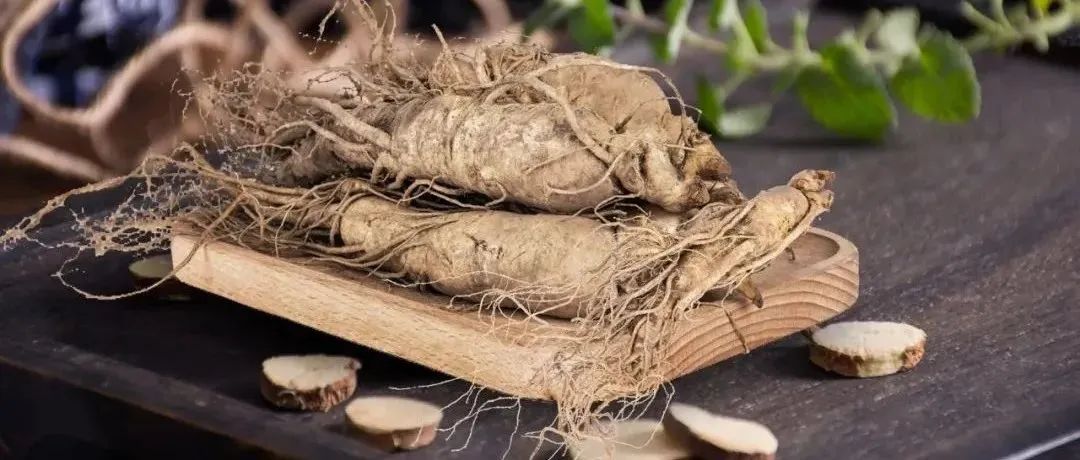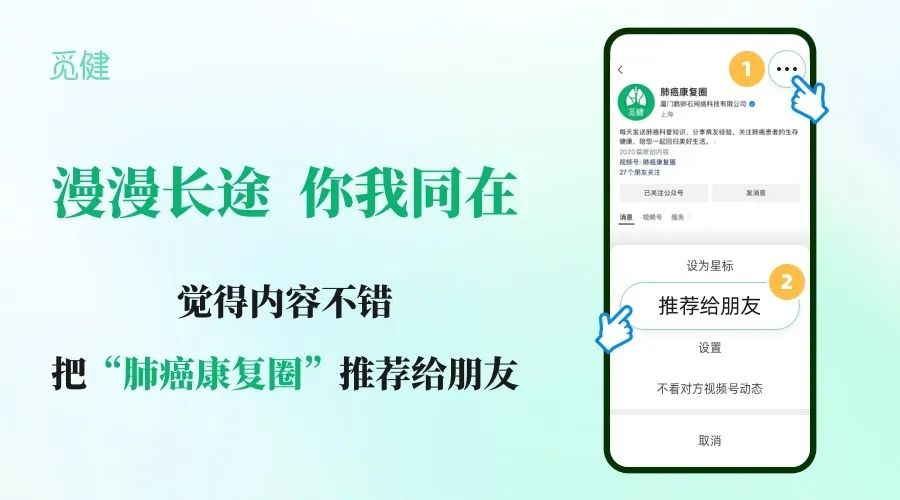Click below to follow for more cancer-fighting knowledge👇
It is said that lung cancer patients need to “supplement nutrition”; appropriate nutritional therapy can not only help us increase treatment tolerance, improve treatment outcomes, and enhance quality of life, but also reduce the risk of recurrence and death in lung cancer patients.
When it comes to nutritional supplements, the first thing that often comes to mind is the traditional precious Chinese herbal medicine that is said to cure all ailments and prolong life: Ginseng.
Many friends have been asking: Can lung cancer patients consume ginseng? Does ginseng have the effect of inhibiting recurrence and metastasis? Which type of ginseng is the best to buy?

First of all, friends who are taking targeted drugs are advised not to consume ginseng! Today, we will clarify these issues quickly, aiming for everyone to understand whether they can eat it, when to eat it, and which type offers the best value for money!
01
Can Ginseng Really Fight Cancer?
The efficacy of ginseng lies in its active component — ginsenosides.
Ginsenosides, also known as triterpenoid saponins, are steroid compounds found in ginseng species and can be considered the “key players” in the medicinal value of ginseng.
Cancer Research
① As early as 1993, Japanese natural product chemist Hidetaka Kitagawa discovered in experiments that ginsenoside Rg3 has a selective inhibitory effect on tumor cell infiltration and metastasis;
② Subsequently, scholars from various countries conducted extensive research confirming that Rg3 and Rh2 are the main ginsenosides with anti-tumor effects;
③ In 2021, a research report published in the international journal Journal of Ginseng Research indicated that Rk1 and Rg5 in ginseng can significantly inhibit lung cancer metastasis.
Mechanism of Anti-Cancer Action
Studies have shown that the mechanisms of action of these four components are different.
Rg3 can inhibit tumor growth and metastasis by downregulating the expression of mRNA and protein of tumor VEGF (vascular endothelial growth factor), which is an important cytokine for tumor angiogenesis;
Rh2 induces apoptosis in cancer cells by upregulating the expression of Caspase-3 (known as the “apoptosis executor”).
Rk1 and Rg5 effectively inhibit TGF-β1, a cytokine protein that acts as a signaling substance in the body, which can induce lung cancer metastasis and promote the generation of stem cell-like characteristics in cancer cells.
Summary of Anti-Cancer Effects
However, although ginsenosides are important active components for anti-cancer effects, their content in total ginsenosides in ginseng is extremely low, approximately around 0.2%. This means that to allow ginsenosides to exert their effects, one would need to consume tons of ginseng to ensure a sufficient concentration of active components to “fight” tumor cells.
Clearly, this method of fighting cancer is impractical; “eating ginseng” cannot be the primary treatment for cancer.

Image source: Shutterstock
At this point, many friends may feel disappointed: “Doesn’t that mean the ginseng I bought is useless?” Actually, that’s not the case. Ginseng can serve as an auxiliary treatment method because it has beneficial health effects on our body, can enhance human immunity, improve the physical condition of patients, and help us quickly recover our vitality.
After consulting a doctor, friends may consider consuming some ginseng appropriately during lung cancer treatment to condition the body, such as slicing a small amount of ginseng to brew in water or adding a bit of ginseng when stewing soup, based on personal preference and doctor’s advice.
02
Classification of Ginseng and Suitable Groups
Identifying Ginseng
There are many types of ginseng, but not all plants with the word “ginseng” are true ginseng; for example, Codonopsis and Prince ginseng are not true ginseng.
Remember: True wild ginseng is very expensive, and it contains higher levels of “ginsenosides” than cultivated ginseng.
Varietal Classification: Wild mountain ginseng mainly produced in Changbai Mountain, China; American ginseng (also known as Western ginseng) mainly produced in Canada and the USA; and Korean ginseng.
Processing Classification: Fresh ginseng (also called water ginseng) can be processed into red ginseng, white ginseng, black ginseng, etc.
Planting Classification: As for garden ginseng, mountain ginseng, etc., these are named based on cultivation techniques. They can be obtained through artificial cultivation in different locations in a few years, thus being cheaper and less effective, sometimes priced as low as white radish.
Cost-Effectiveness of Ginseng
According to statistics from backend inquiries, many friends are indecisive about whether to choose “raw sun-dried ginseng” or “red ginseng”; let’s look at the differences between them.
-
Raw Sun-Dried Ginseng: Has the effect of greatly replenishing vitality, benefiting the spleen and lungs, and has a milder effect. Suitable for lung cancer patients with fatigue, lack of appetite, upper abdominal fullness, vomiting, diarrhea, thirst due to fluid damage, anxiety, insomnia, and vivid dreams;
-
Red Ginseng: Has the effect of warming and supplementing Yang energy, nourishing blood and generating fluids, calming the heart and mind. Suitable for lung cancer patients with low immunity.
It is worth mentioning that for more patients and their families who expect ginseng to have the effect of “inhibiting recurrence and metastasis”, red ginseng is more recommended under suitable conditions, as the content of ginsenosides Rk1 and Rg5 in red ginseng is higher than in other varieties. It should be noted that those with a hot constitution who are prone to heat should avoid red ginseng, as it may be ineffective or even harmful to the body.

Contraindications for Red Ginseng:
-
Those with Yin deficiency and excessive heat, such as those with hot hands and feet, irritability, insomnia, and constipation;
-
Patients experiencing purulent inflammation during treatment;
-
Patients with hypertension or cerebral hemorrhage;
-
During a cold or fever (generally, supplements are not recommended during this period);
-
Those with asthma due to sudden respiratory obstruction;
-
Those with dry throat due to dryness and heat;
-
Those with hemoptysis due to impulsive actions;
-
Those with epistaxis or nasal bleeding;
-
Those with edema caused by damp-heat accumulation in the body (edema may worsen after taking ginseng due to its diuretic effect);
-
Those with renal insufficiency and low urine output should also use caution.
03
Selection, Purchase, and Consumption Methods of Ginseng
Purchasing Ginseng
Select regular purchasing channels: Check if the product has the small blue hat mark issued by the state (a sky-blue hat-shaped mark with the words “health food” below, and the approval number has “National Food Health Code G/J + year + number”. Where “G” represents domestic, and “J” represents imported).
Ginsenoside Content: Check the nutrition label on the back of the packaging for the content of Rg3, Rh2, Rk1, and Rg5.

Image source: Internet
Consumption of Ginseng
Consume under the advice of a doctor.
Chewing Method: Slice ginseng and chew 2-3 slices daily;
Tea Method: Slice ginseng, place in a bowl or cup, and brew with boiling water, cover for 5 minutes;
Porridge Method: Slice ginseng and add a small amount when cooking porridge for breakfast;
Stewing Method: Slice ginseng and cook with lean pork, chicken, fish, etc., to eliminate the bitterness of ginseng.
When consuming ginseng, please pay attention to the following:
① True ginseng has a slightly bitter taste with a not very pronounced sweet ginseng aroma;
② Ginseng is a warming supplement, more suitable for consumption in autumn and winter;
③ Those with a cold constitution are more suitable than those with a hot constitution;
④ If ginseng is moldy, be sure to throw it away and not consume it;
⑤ Avoid using metal utensils for stewing ginseng to prevent affecting its medicinal properties;
⑥ As a supplement, avoid consuming ginseng with leeks, white radish, strong tea, or coffee to prevent energy loss or affecting its medicinal properties.
Conclusion
I would like to remind everyone again that ginseng should be used according to medical advice to ensure proper usage and dosage, and it should be purchased through legitimate medical channels to avoid wasting money and being deceived.
Finally, a content survey:
If your answer contains “no”, please be sure to let me know in the comments where you have doubts about the content! 
Lung Cancer
Related Articles
《Congratulations to this type of lung cancer patients! Treatment effectiveness rate exceeds 70%》
《Regarding medical insurance reimbursement! Lung cancer patients must undergo genetic testing, be sure not to miss these cost-saving regulations》
《Professor from West China Hospital Lung Cancer Center reveals: Survival rate of late-stage lung cancer has increased sixfold!》
References
[1] Luo Linming, Shi Yaning, Jiang Yina, Zhan Jihua, Qin Li, Chen Naihong. Research progress on effective components and mechanisms of ginseng’s anti-tumor effects [J]. Chinese Herbal Medicine, 2017, 48(03):582-596.
[2] https://medicalxpress.com/news/2021-03-effect-red-ginseng-suppression-lung.html (A new effect of red ginseng: Suppression of lung cancer metastasis)
[3] Hyunhee Kim, Pilju Choi, Taejung Kim, Youngseok Kim, Bong Geun Song, Young-Tae Park, Seon-Jun Choi, Cheol Hee Yoon, Won-Chul Lim, Hyeonseok Ko, Jungyeob Ham. Ginsenosides Rk1 and Rg5 inhibit TGF-β1-induced epithelial-mesenchymal transition and suppress lung cancer migration, invasion, resistance, and stem-like characteristics. Journal of Ginseng Research, 2021, 45(1):134-148.
[4] Jilin University. The effects of ginseng processed by different methods on immune function in mice [J]. Medical and Health Technology, 2020, 48(03):582-596.
[5] Sun Xiaodan, Wang Tianming, Li Hui, Zhao Peiyan, Liu Yan, Cheng Ying. Research on the mechanism of ginsenoside Rh2 inhibiting the proliferation of non-small cell lung cancer cells [J]. Chinese Herbal Medicine, 2022, 53(02):441-448.
[6] Mao Rui, Ding Chuanbo, Zhang Shuai, Liu Xinglong, Ding Qiteng, Zhang Ying, Shao Xiaocheng, Liu Wencong. Overview of the biological activity and comprehensive utilization of red ginseng [J]. Shanghai Journal of Traditional Chinese Medicine, 2024, 58(2):11-16.
Content Production
Warm reminder: The information contained in this article aims to convey cutting-edge medical information and research progress, and does not involve recommendations for treatment plans. In clinical practice, please follow the advice and guidance of doctors or other healthcare professionals.
Cover image: Shutterstock + Draft Design
Editor: Mi Jian A Nan
Click below to follow for more cancer-fighting knowledge👇

